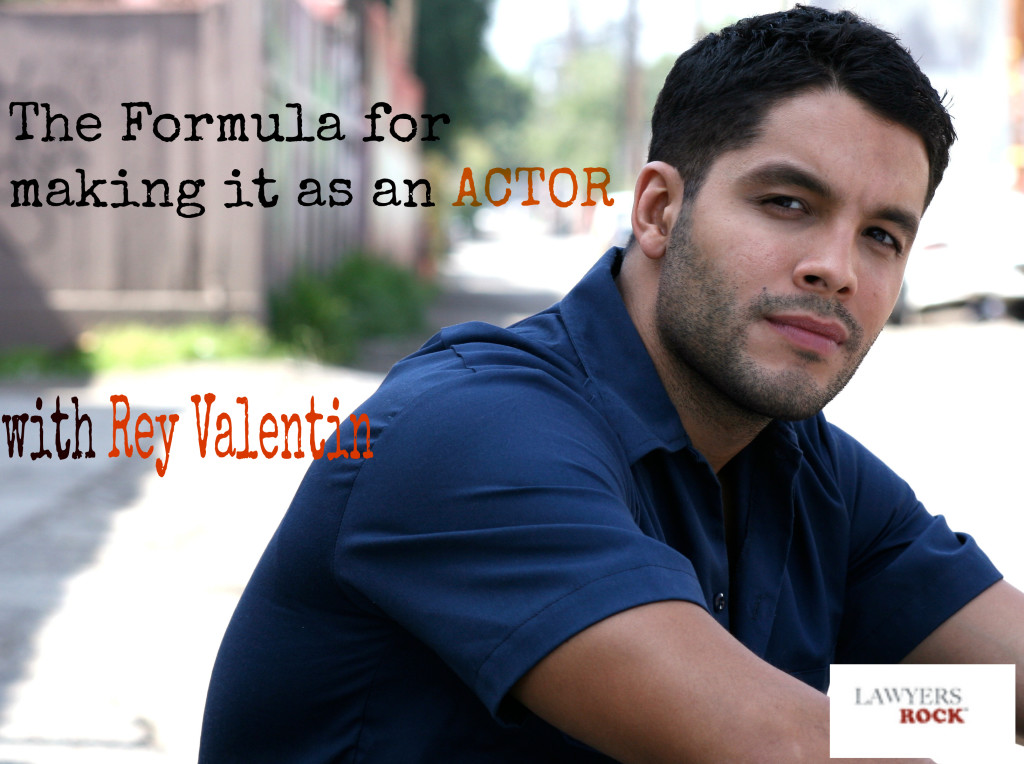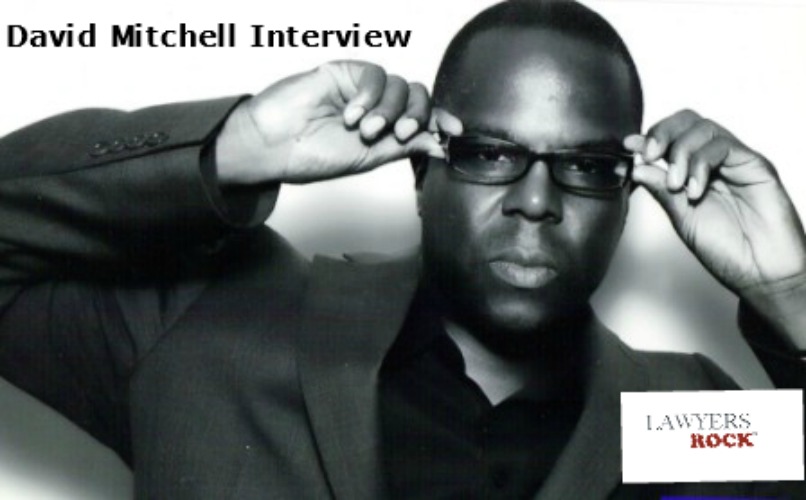 So recently I have been asking you guys what subjects you want to know more about. Thanks for all the feedback! I want to make sure we are getting you the information you really need to remove some of the confusion surrounding legal and business topics in the Entertainment industry and help you always move forward.
So recently I have been asking you guys what subjects you want to know more about. Thanks for all the feedback! I want to make sure we are getting you the information you really need to remove some of the confusion surrounding legal and business topics in the Entertainment industry and help you always move forward.
Understand that some topics are just too complex or specialized to summarize in a post so I choose ones that can be informative to as many of you as possible.
That’s why I’m excited to bring you today’s post. It’s contains some answers to a topic I get many questions about.
The topic is the Fair Use Doctrine as it applies to copyright law, trademarks, and right of publicity, which can be confusing even to some attorneys.
The purpose of Fair Use is basically to allow creators of new work to use pre-existing work if it is part of their creative process as opposed to having an intent to piggy back on the success of the pre-existing work, so there is no requirement to obtain clearance from the owner.
In other words, you may be able to use existing copyrighted works, trademarks, and images of people if they are an incidental part of your music or scene; if it is for educational purposes; or if you are doing an obvious parody (i.e, like Saturday Night Live Skits or Weird Al Yankovic).
For all you legal buffs out there who like to read about behind-the-scenes lawsuits involving pop culture, Google 2 Live Crew “Pretty Women” vs. Roy Orbison’s “Pretty Women” (the actual case is Luther Campbell v. Acuff-Rose Music, 510 U.S. 569 (1994). Fascinating reading…although if you get offended easily you may not want to download 2 Live Crew’s discography.
Now fair use sounds great but it can be pretty tricky. Only certain situations fall into this category so you can get into some trouble if you apply it incorrectly. You really need to understand how to do a proper Fair Use Analysis to see if your particular circumstances fall within the criteria.
In the video below am going to go more into what the Fair Use Doctrine is, and how the analysis generally works. Hope you enjoy the video. For those who prefer reading I have a full transcript of the video at the bottom of this post.
Fair Use Doctrine
– Transcript –
Hi everybody and welcome to Layers Rock. Today I thought I’d tackle a subject that I think is going to appeal to a lot of people. Whether you’re a television producer, an Indie film maker, or an online content creator, everyone seems to be interested in when the fair use doctrine applies, in other words, when a protectable element is captured in a video like a company’s trademark, artwork, or video clip, and you may not have to get a clearance from the owner of the pre-existing element because your situation satisfies one of the fair use doctrines.
Now, fair use can be a very tricky subject because it applies when there is an legal infringement, BUT the situation qualifies as fair use. So we’ll go through some of the guidelines and hopefully after viewing this video, you’ll have a better understanding. So let’s rock.
Before we jump into talking about fair use, I want to make sure you understand that I believe you should try to clear as many elements as you can in your content. You should try to get agreements, releases, consents, and waivers so that you have all the rights needed to show your content. I don’t want you to say “oh, some guy on YouTube said I don’t have to clear anything.”
That’s not fair use! Fair use is an analysis that can be used in clear cut cases or as a secondary option if you discover an element in your footage that is owned by another. You may want to go through the fair use analysis to see if you really need to obtain approval. And understand that it’s always judgment call!
Okay, so now that I have said my legal disclaimer, let’s jump into it, starting with copyright fair use.
COPYRIGHT FAIR USE
When you’re talking about things that are protected by copyright law, you’re talking about things like your script (dialogue for your characters), set designs, such as the artwork that appears in a shot, pre-existing video clips, and, the music that is playing in synchronization with your scene. As you see in this slide, the Copyright Act recognizes a fair use exception as long as you meet certain criteria. And that’s determined on a case-by-case basis.
Basically the criteria is set forth in the following four factors:
1. What is the purpose and character of the use? Is it a commercial use or are you using it for a nonprofit use? Nonprofit uses such as for educational purposes are more likely to satisfy this fair use factor. This factor also analyzes whether the use of a work is transformative, meaning, “Has the material taken from the original work been transformed by adding new expression or meaning? and “Was value added to the original by creating new information, new aesthetics, new insights, and understandings?” If the answer to these questions is yes then this factor (which is heavily weighted in the overall analysis) is satisfied.
2. What is the nature of your use? How are you using the protected element? Are you using it to focus on the original material or is it more of a background use that sets the scene? Was the material unpublished or established in the public? The use of published work that is used in a manner to set a scene is more likely to satisfy this factor.
3. How much of the work are you using? Are you using the entire original material? Are you using the “heart” of the original material, like a famous quote from a book or the catchy hook in a song? If you are not using a significant amount or the heart of the original material, then you will likely satisfy this element.
4. What affect does your use have on the value of the original material? If your use does not devalue the original material then you will likely satisfy this element. For example, if someone is likely to buy your video that uses a song in it, to the extent that that consumer no longer needs to purchase that song by itself, then that is not going to satisfy this element because the video and the stand-alone song are competing for the same customer which devalues the song.
These are the factors you’ll have to satisfy to claim fair use.
TRADEMARK FAIR USE
Now let’s talk about an area that’s more clear cut than copyright: trademarks. Trademarks follow a two part test called the Rogers test, which comes from a famous case involving the legendary actress/dancer Ginger Rogers. The slide shows the specific language, but it may be easier to simplify the test by turning it around.
As long as you have artistic relevance for your use, (you are including the protected trademark for some artistic purpose) and you’re not misleading as to the source of the trademark (you are not showing the trademark of a product or service and claiming that it is owned by someone other than the true owner), than you have a good claim for fair use.
For example if you’re shooting a scene in a bar and you’re panning the place, and you film labels of alcohol behind the bar, the method that you are using likely qualifies as being artistic relevance. You are setting the scene and showing your audience that the scene is in the bar. As long as you are not misleading about a label, or somehow implying that a certain alcohol is produced by someone other than the rightful owner, then you have a good argument for fair use.
RIGHT OF PUBLICITY FAIR USE
An area that’s a little harder to dissect is Right of Publicity. The elements are:
1 You have used a person’s identity (i.e., captured them in your content)
2. Your use is to your advantage (i.e, it will increase the value of your content)
3. The person did not authorize you to capture them on film.
4. The use will cause the person damage.
Right of Publicity, as it relates to fair use, can get a little tricky because there are different state laws that apply so it partly depends on where you are shooting your scene. You have to fit these elements within the legal framework of the applicable state.
Another consideration for right of publicity fair use is that most people want to find a way to show celebrities in their footage without obtaining permission so they look to fair use. That’ is probably not going to work because of element number four, damages. Celebrities will usually be damaged if someone is allowed to use them in footage for free because part of being a celebrity is to make money from appearances. So, fair use usually doesn’t apply in these instances. If you’re dealing with a non-celebrity than it’s much easier and you can go through the analysis.
I hope this video was helpful for you. Again, I don’t think you should analyze these things on your own. You should present the situation to your attorney so he or she can help you make an informed decision as to whether it qualifies as fair use.
At least now you are able to recognize when to ask!
 As a weekly blogger on the business side of the entertainment industry, people often ask me what blogs I myself follow on the subject. To stay on top of things I read a handful of blogs regularly.
As a weekly blogger on the business side of the entertainment industry, people often ask me what blogs I myself follow on the subject. To stay on top of things I read a handful of blogs regularly. I talk about Branding A LOT on this website. That’s because when it comes to the Entertainment world branding is not just another industry buzzword it is truly important to success. As the entertainment industry continues to put more emphasis on working with people who have their own fan influence via huge social media followings, branding will just continue to grow in importance.
I talk about Branding A LOT on this website. That’s because when it comes to the Entertainment world branding is not just another industry buzzword it is truly important to success. As the entertainment industry continues to put more emphasis on working with people who have their own fan influence via huge social media followings, branding will just continue to grow in importance. This site is primarily designed for you the Entertainment Entrepreneur. That’s why I love to feature people who are doing well in various areas of the entertainment industry so we can all learn from their experiences.
This site is primarily designed for you the Entertainment Entrepreneur. That’s why I love to feature people who are doing well in various areas of the entertainment industry so we can all learn from their experiences.